(Page 159)
Lesson A
| Present Perfect |
| Affirmative Statements | I have finished my homework. He has finished his homework. |
| Negative Statements | I haven't cooked dinner. She hasn't cooked dinner. |
| Yes/No Questions | Have you cleaned the room? Has he cleaned the room? Have you left work? Has she left work? |
| Short Answers | Yes, I have. / Yes, he has. No, I haven't. / No, she hasn't. |
| Wh-Questions | What have you done today? Where has she been? How long have they known each other? |
| Form the present perfect with have / has + past participle. We can use the present perfect (like the simple past) to talk about completed actions in the past, but without saying when they happened. |
| Past Participles Regular verbs end in -ed: Irregular verbs have irregular past participles: |
A Write the irregular past participles from the box next to the correct verb.
| read spoken drunk bought swept told won said made eaten met done |
1. buy ________ 7. read ________
2. do ________ 8. say ________
3. drink ________ 9. speak ________
4. eat ________ 10. sweep ________
5. make ________ 11. tell ________
6. meet ________ 12. win ________
B Complete the conversation with the present perfect.
1. A: What (1) __________ (you, do) today?
B: Nothing very exciting. I (2) __________ (clean) the house, and I (3) __________ (cook) dinner. (4) __________ (you, have) an interesting day?
A: No, not really. I (5) __________ (be) sick. I (6) __________ (not do) anything.
2. A: Today, I (7) __________ (pay) the bills and I (8) __________ (buy) the groceries. (9) __________ (you, have) an interesting day?
B: Well, I (10) __________ (visit) a friend. And I (11) __________ (buy) some clothes for my new job.
Lesson C
| Simple Past and Past Continuous with when and while |
| An action interrupting another action in the past While she was studying in high school, she won a scholarship. They were running a marathon when I arrived at their school. I first met my best friend while I was traveling abroad a few years ago. Two actions happening at the same time in the past While I was learning English, he was preparing for his driving test. |
| We weren't chatting when the teacher came into the classroom. David wasn't watching TV while his mom was cooking dinner for the family. He was helping her. |
| Was she doing her math homework when she heard a loud noise? | Yes, she was. No, she wasn't. |
| Were you listening to the teacher while she was explaining the math problem? | Yes, we were. No, we weren't. |
| Use the past continuous to talk about actions in progress at a specific time in the past. Use the past simple to talk about short, completed actions. |
C Complete the sentences with the correct forms of the verbs in parentheses.
1. I ________ (jog) in the park when I suddenly ________ (fall) and ________ (hurt) my knee.
2. While the students ________ (perform) on the stage, their parents ________ (arrive) at the hall.
3. My teacher ________ (wear) a beautiful white áo dài when I ________ (see) her at the graduation ceremony.
(Page 160)
4. We ________ (prepare) a poster for the school event when the teacher ________ (come) to help us.
5. Alice ________ (do) exercises while her classmates ________ (discuss) the presentation topics with each other.
D Complete the conversations with the correct forms of the verbs in parentheses.
1. A: What ________ (you / do) when I ________ (call) you yesterday?
B: Well, I ________ (write) an essay.
2. A: ________ (you / shop) at Big K supermarket when my brother ________ (meet) you yesterday?
B: No, I ________ (eat) ice cream in front of the food court when he ________ (come) and ________ say) hello.
3. A: What _________ (your parents / do) when we were talking on the phone yesterday?
B: My dad _________ (cook) dinner while my mom (clean) the house.
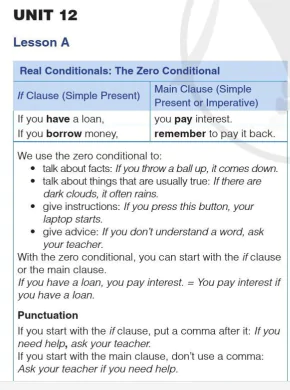
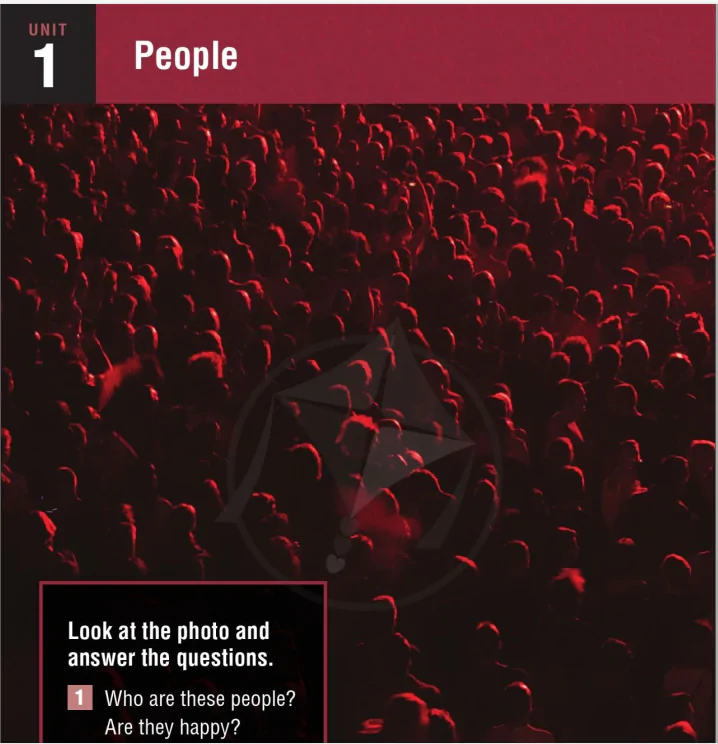
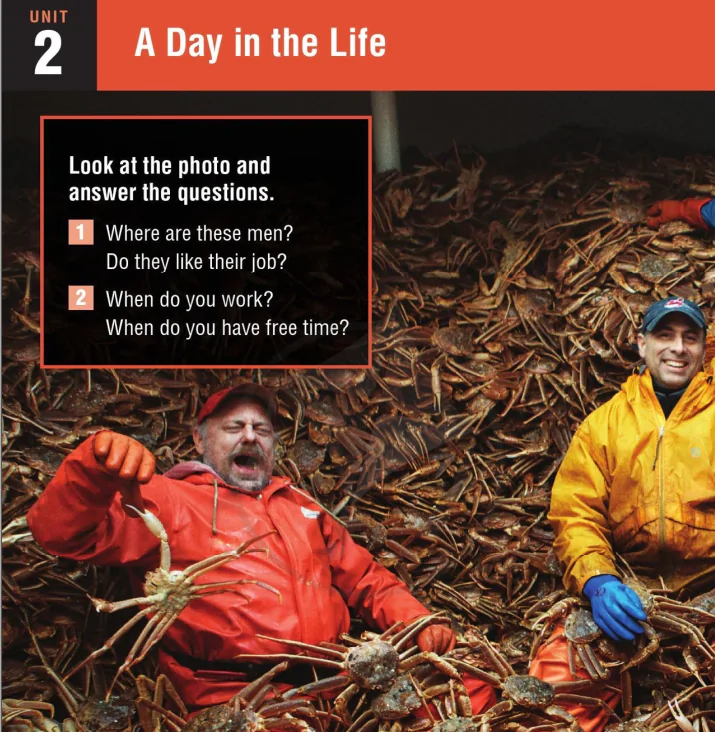
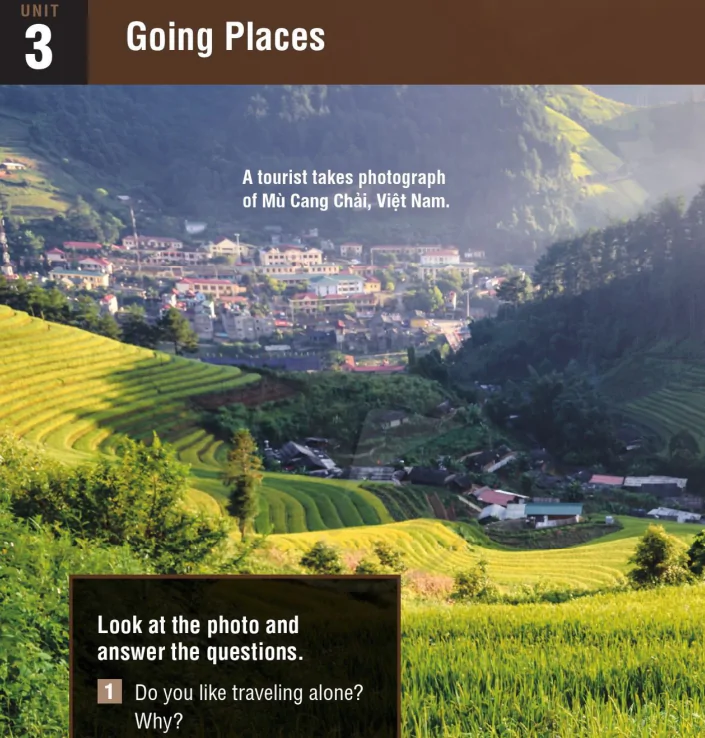
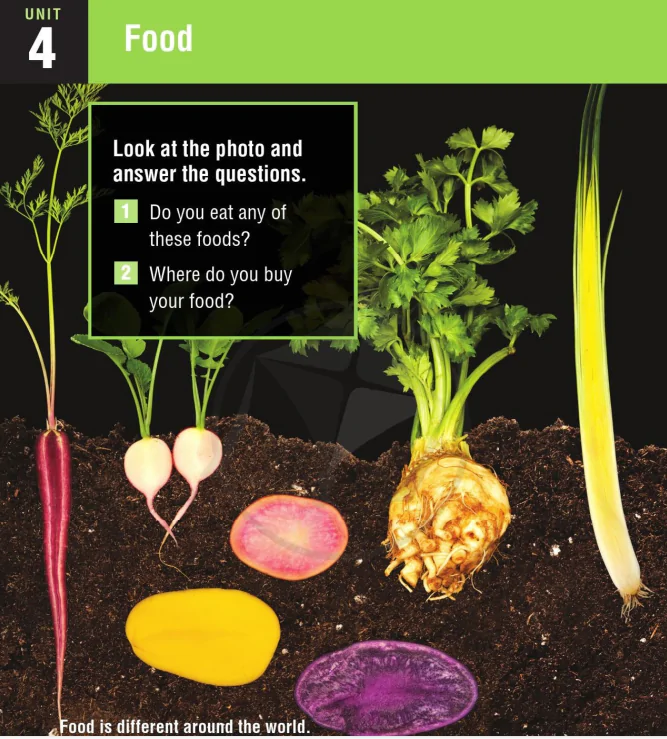
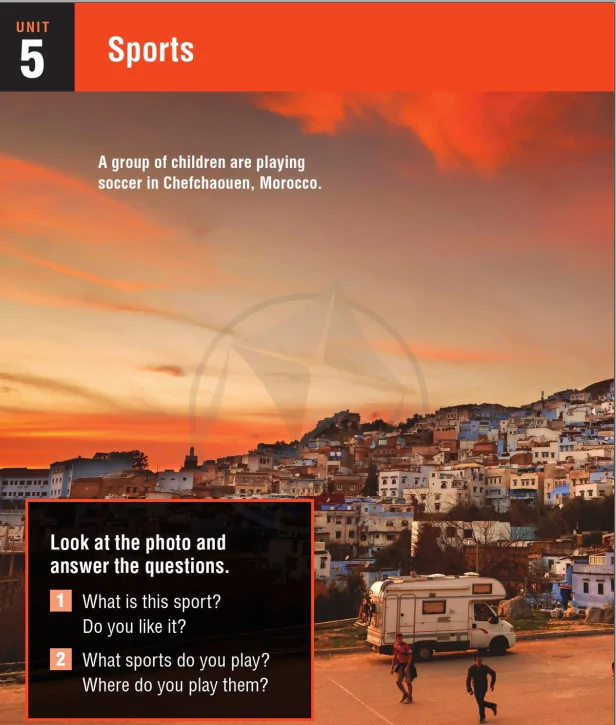
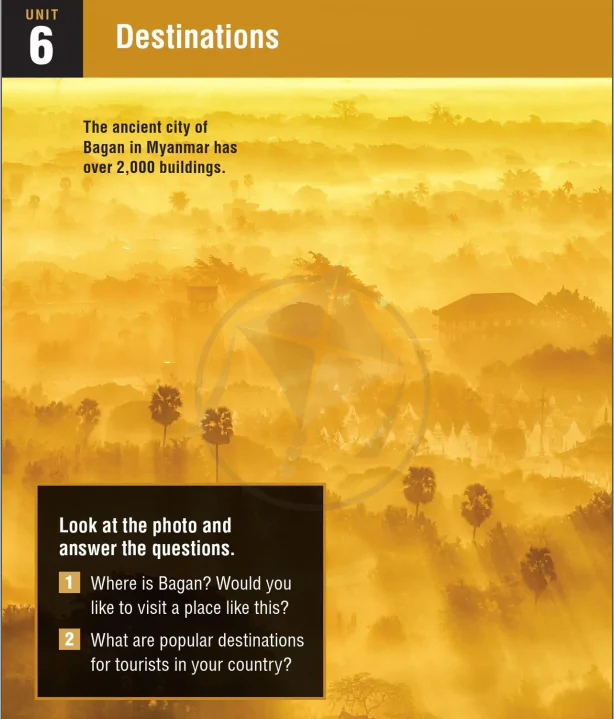
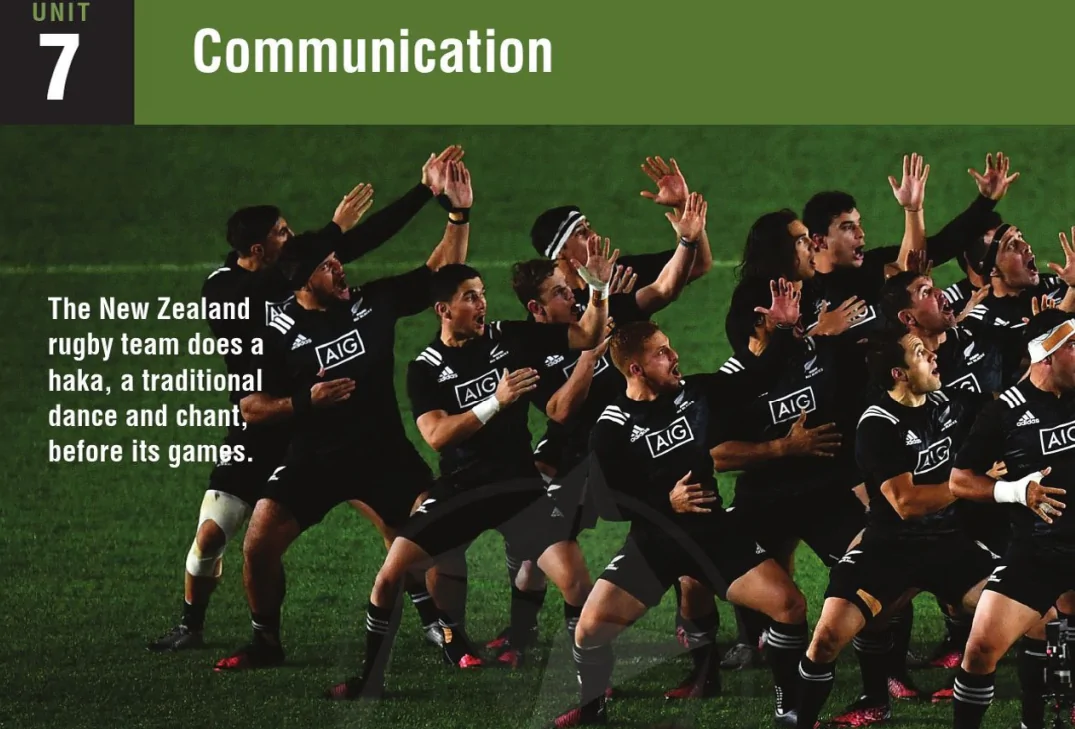
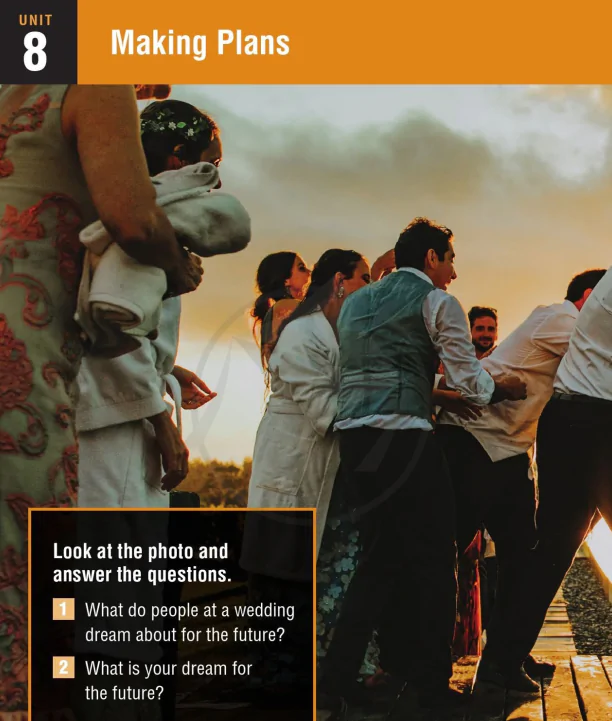
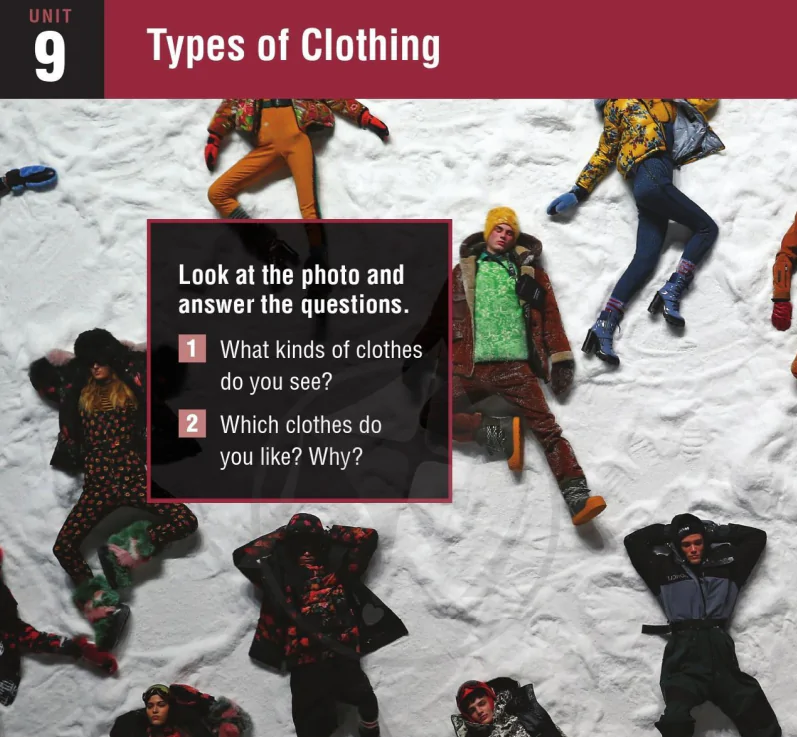

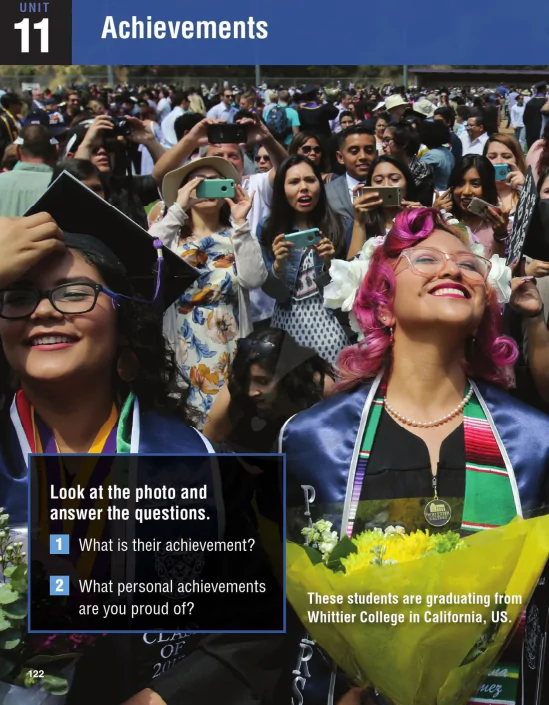
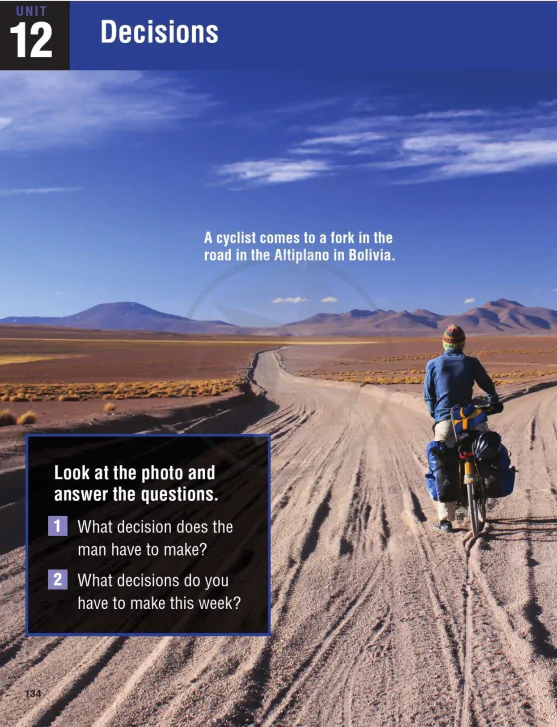
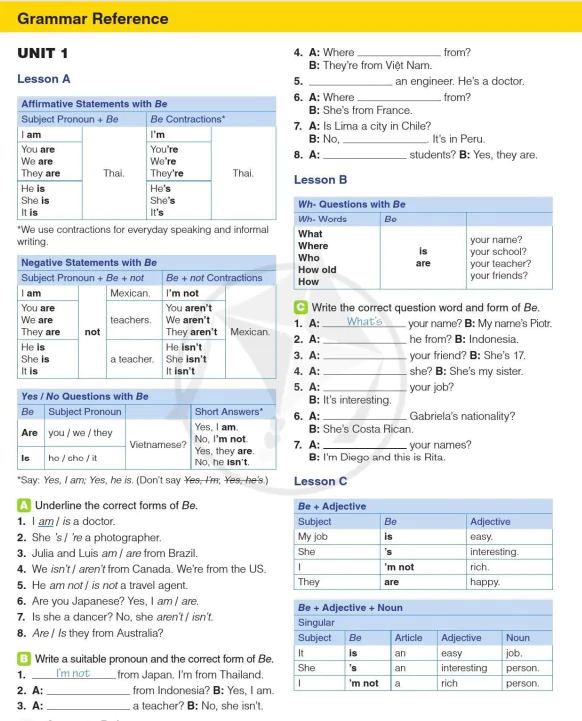
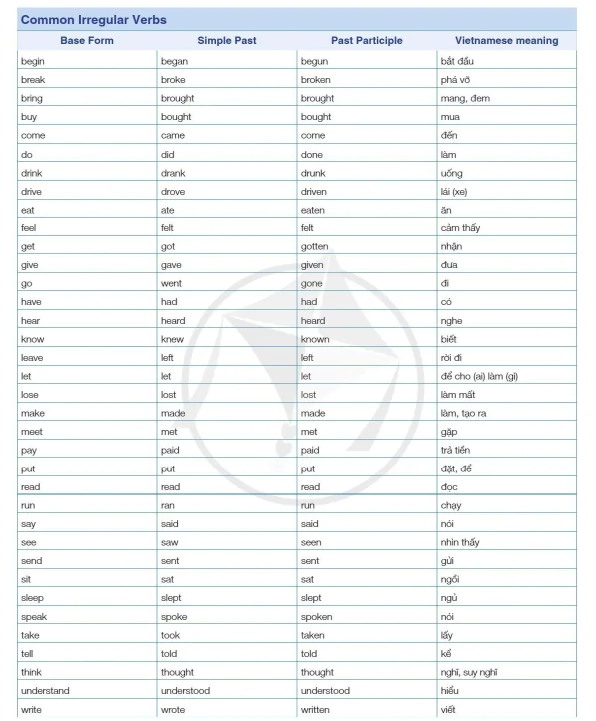
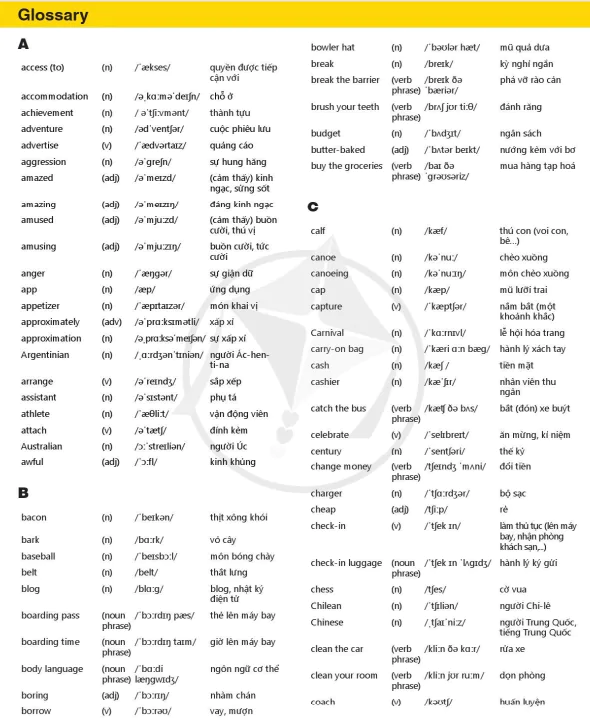

















Bình Luận
Để Lại Bình Luận Của Bạn